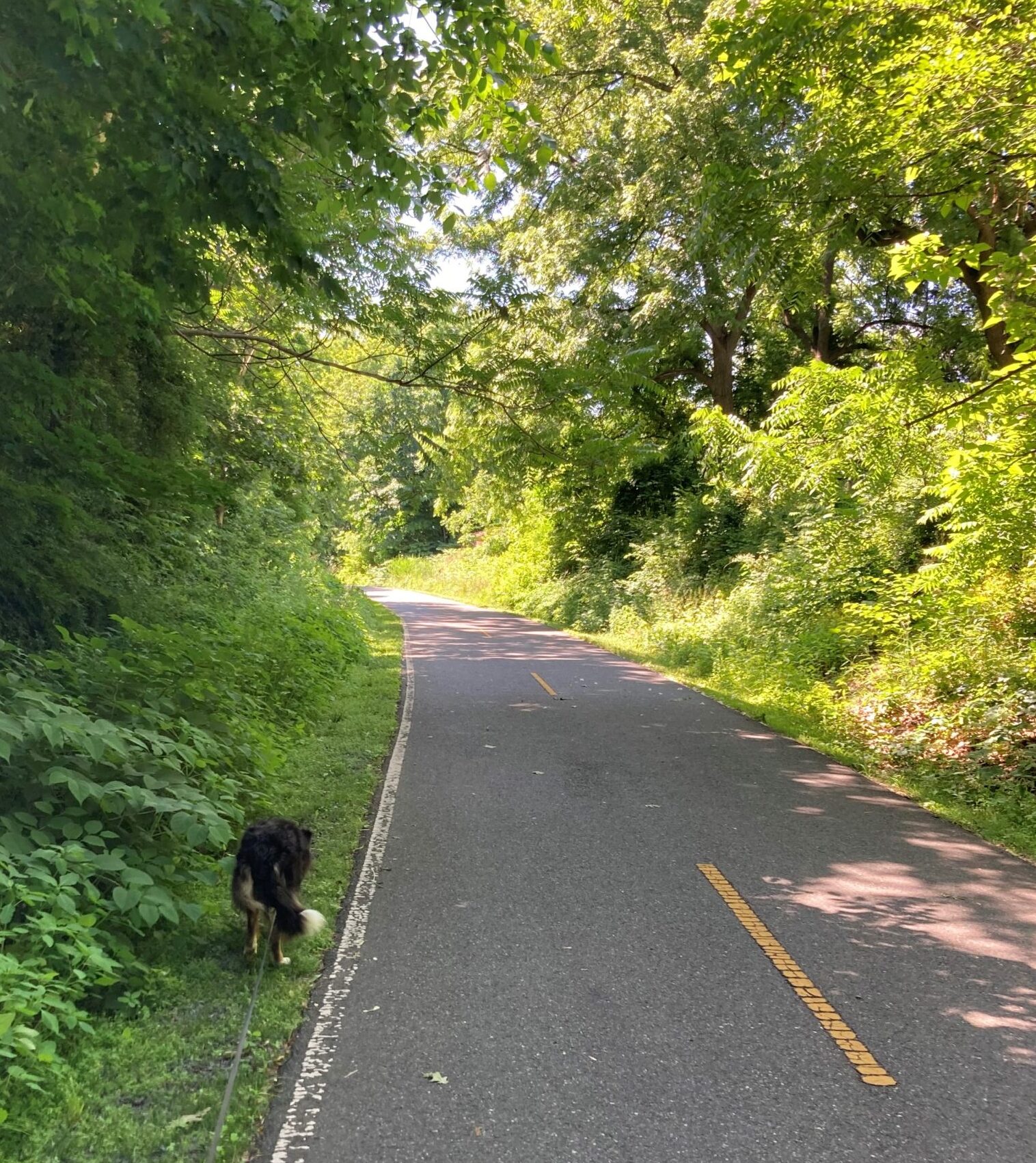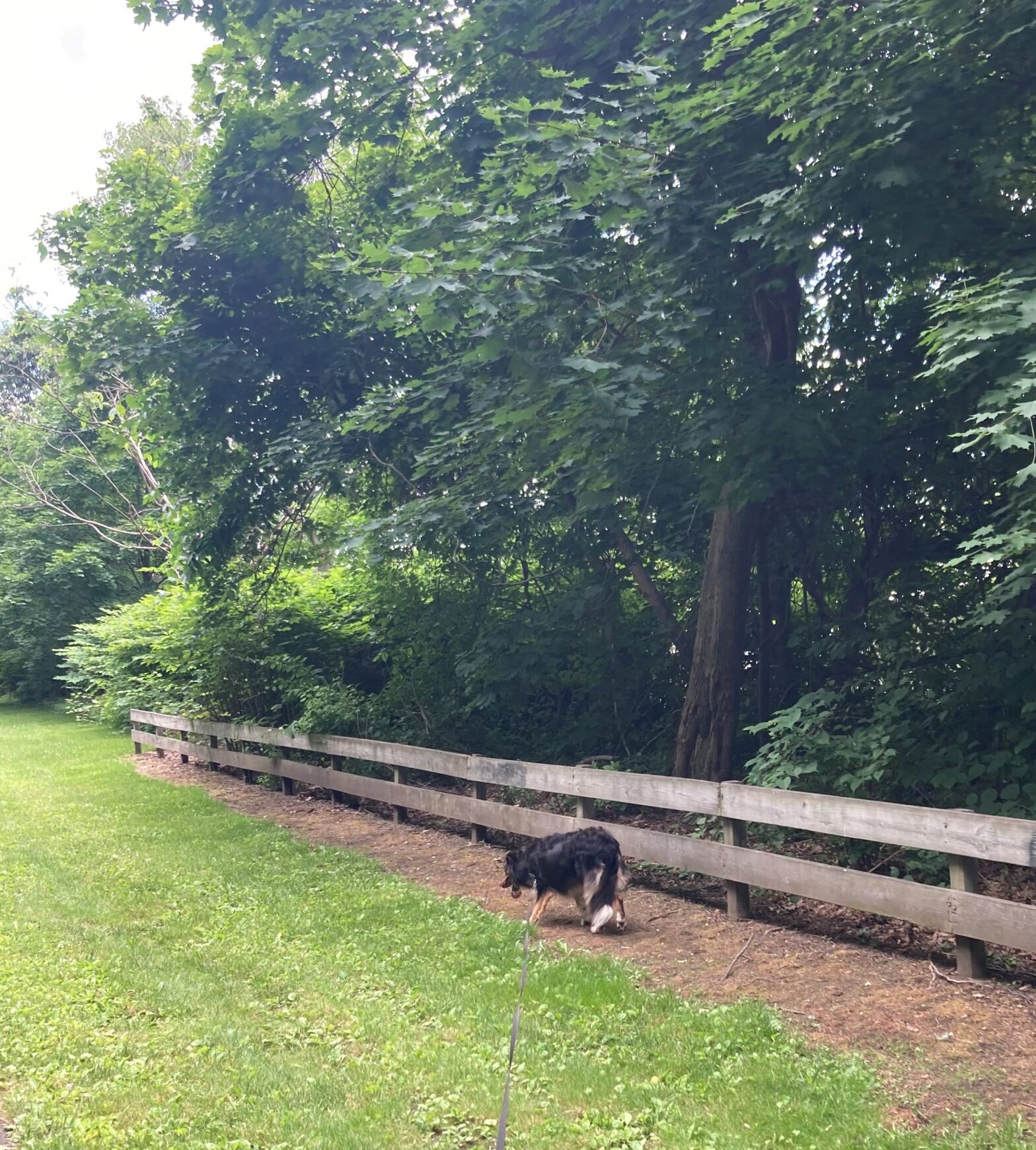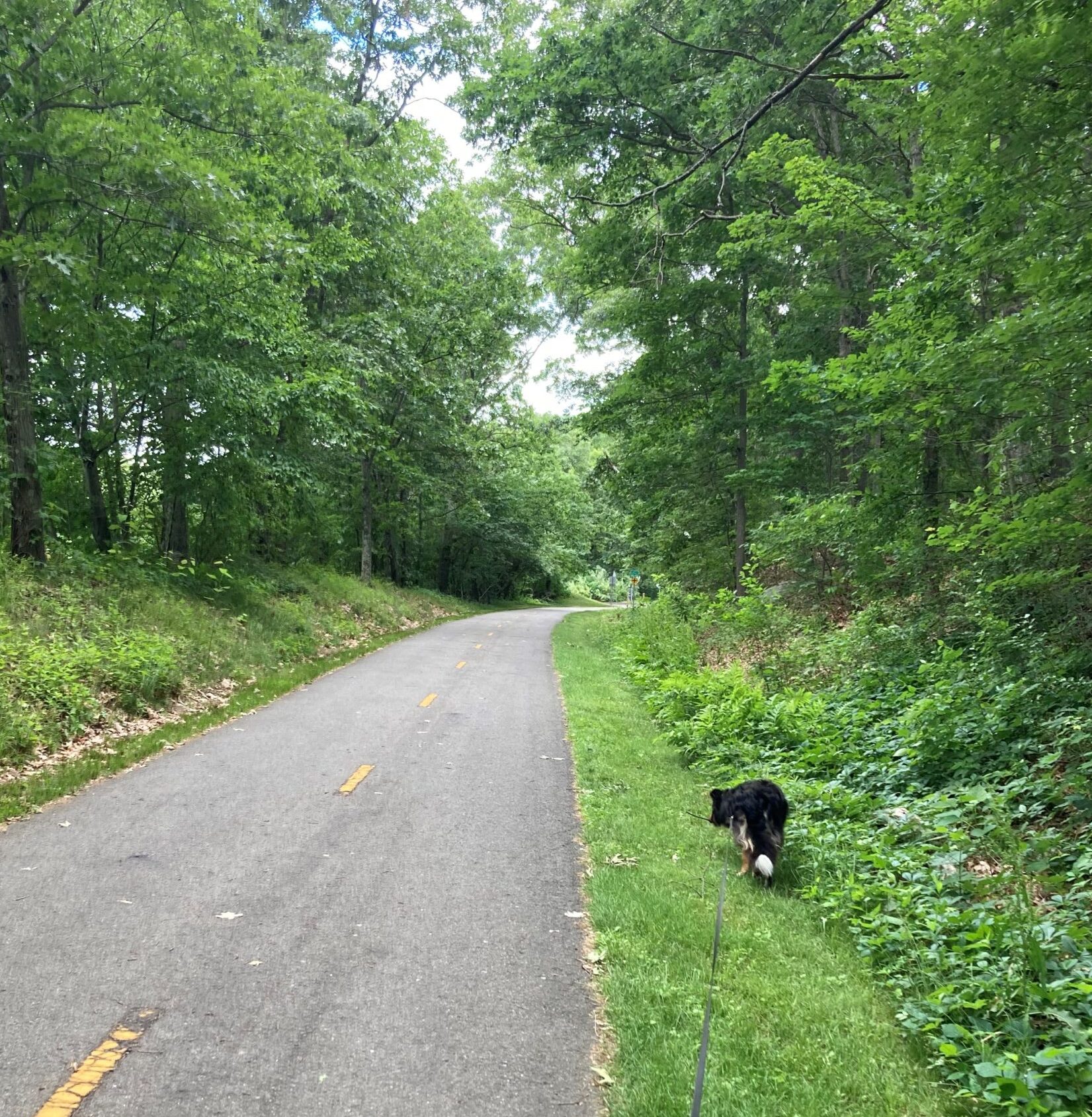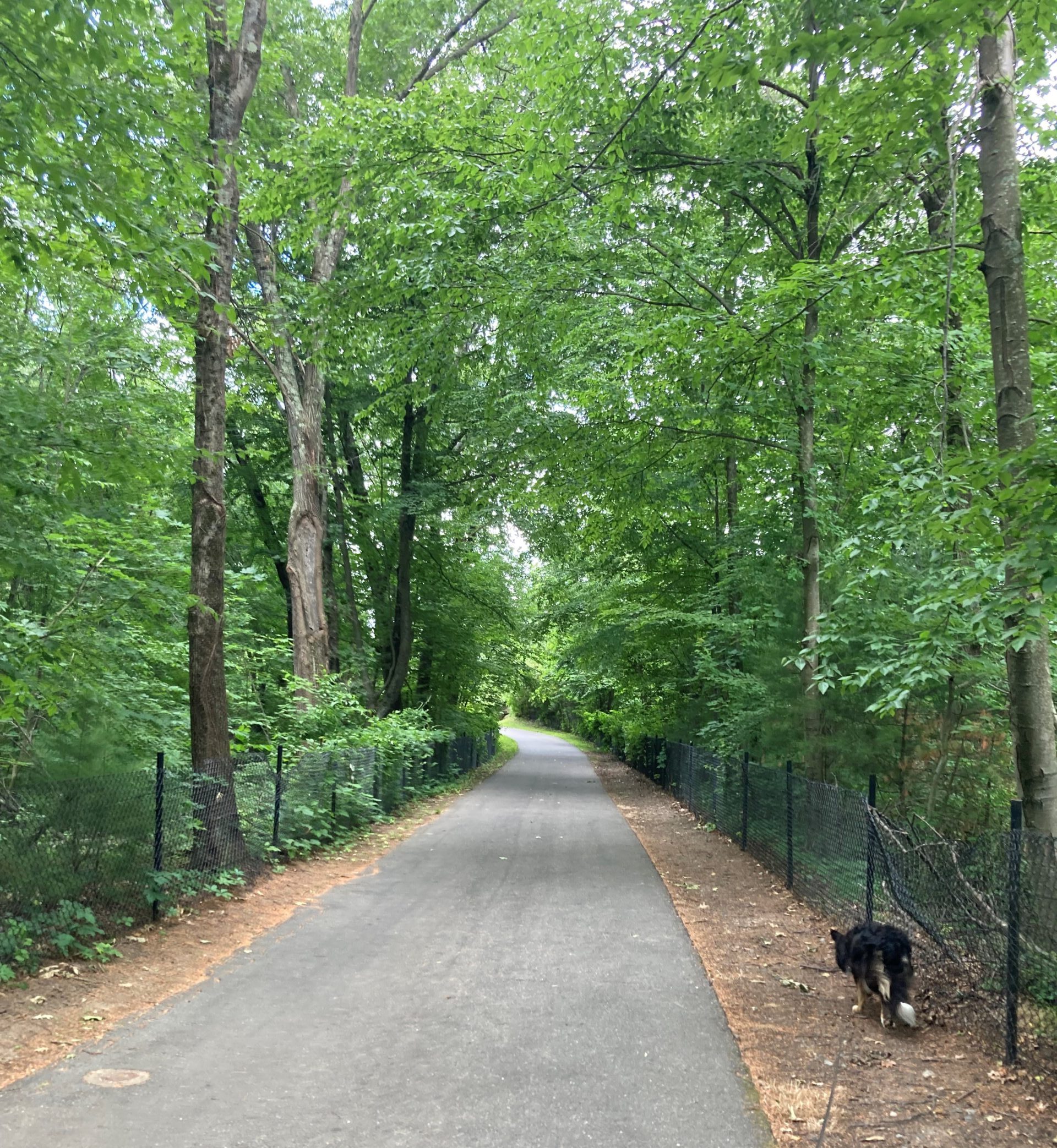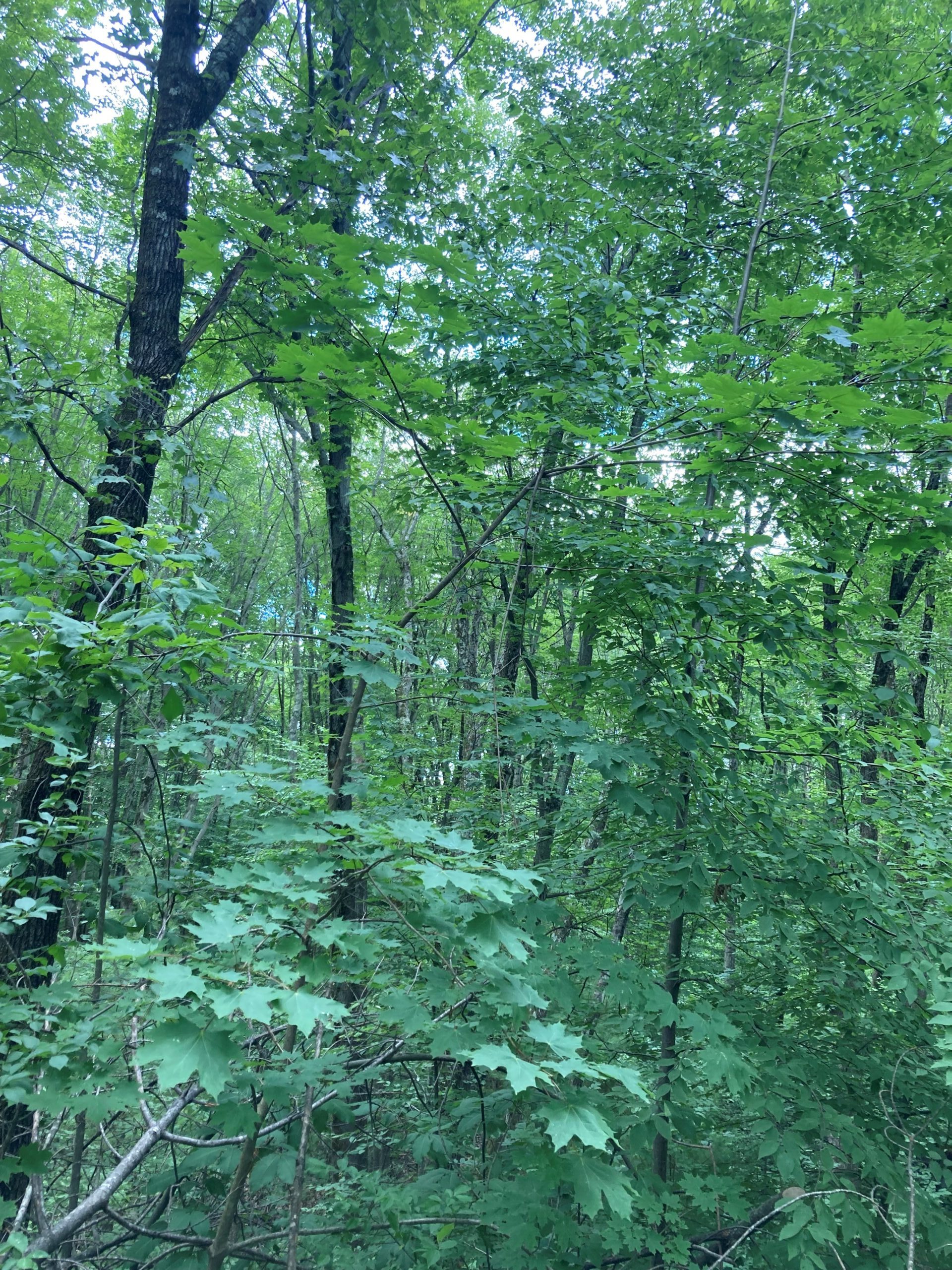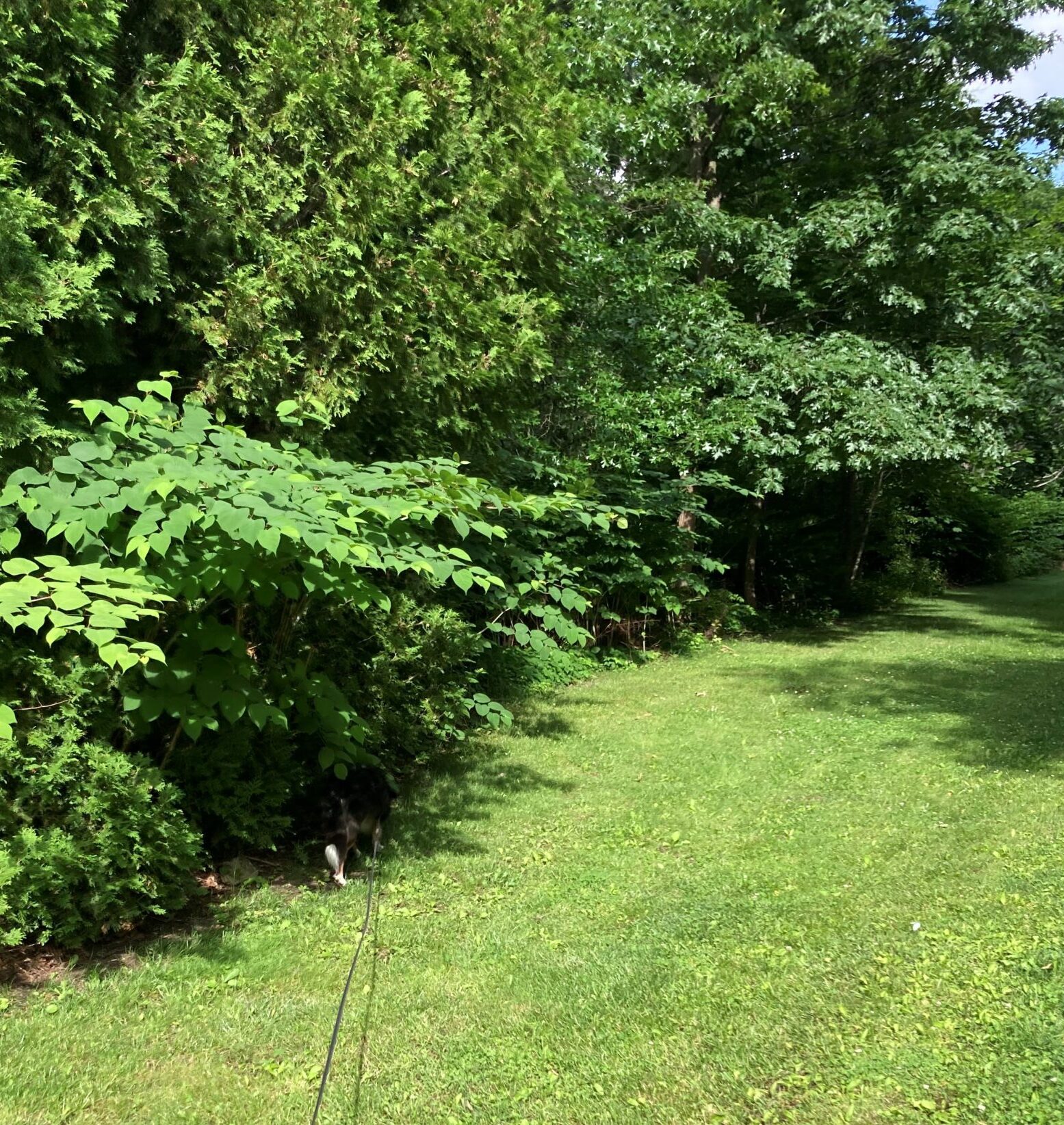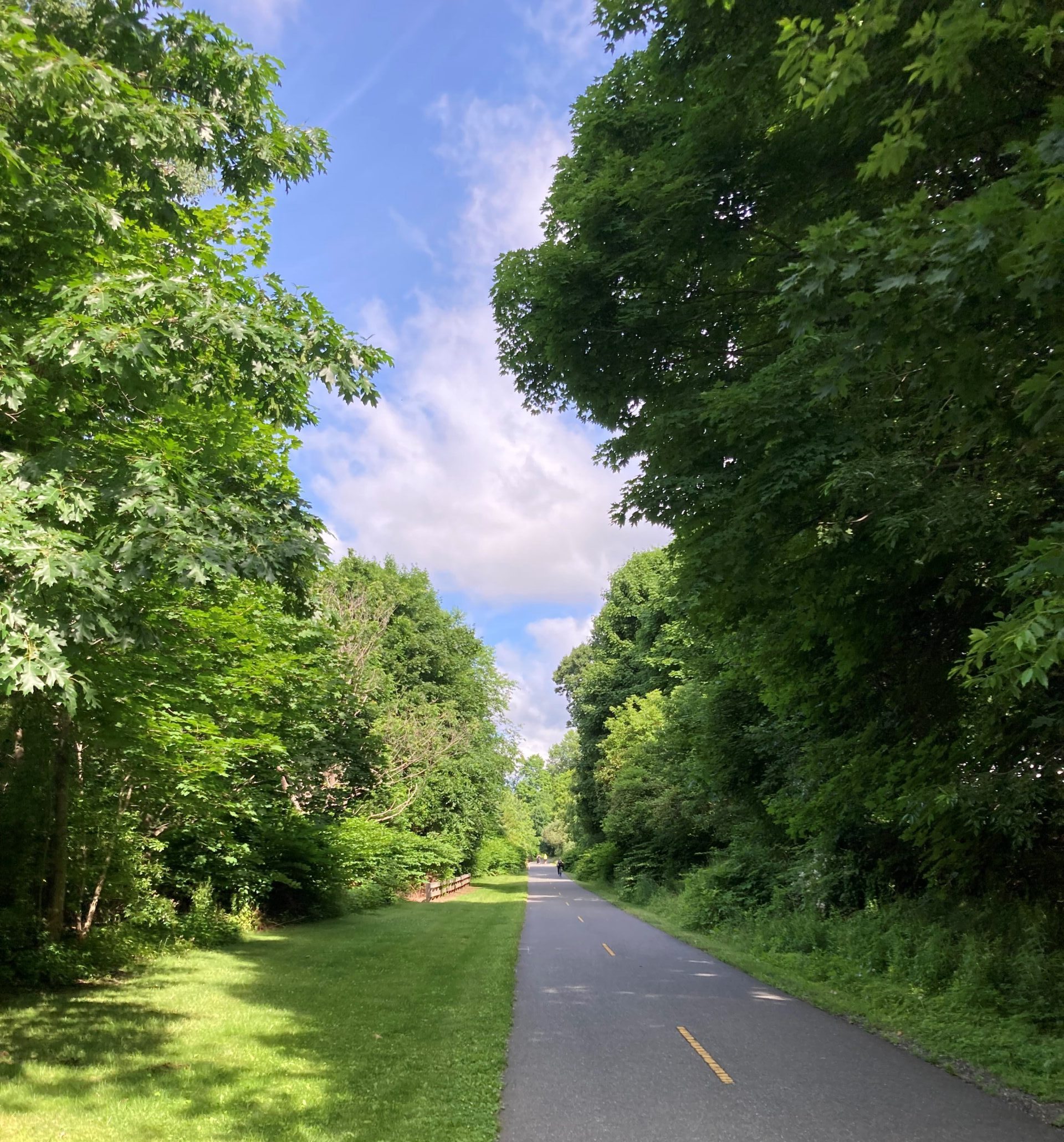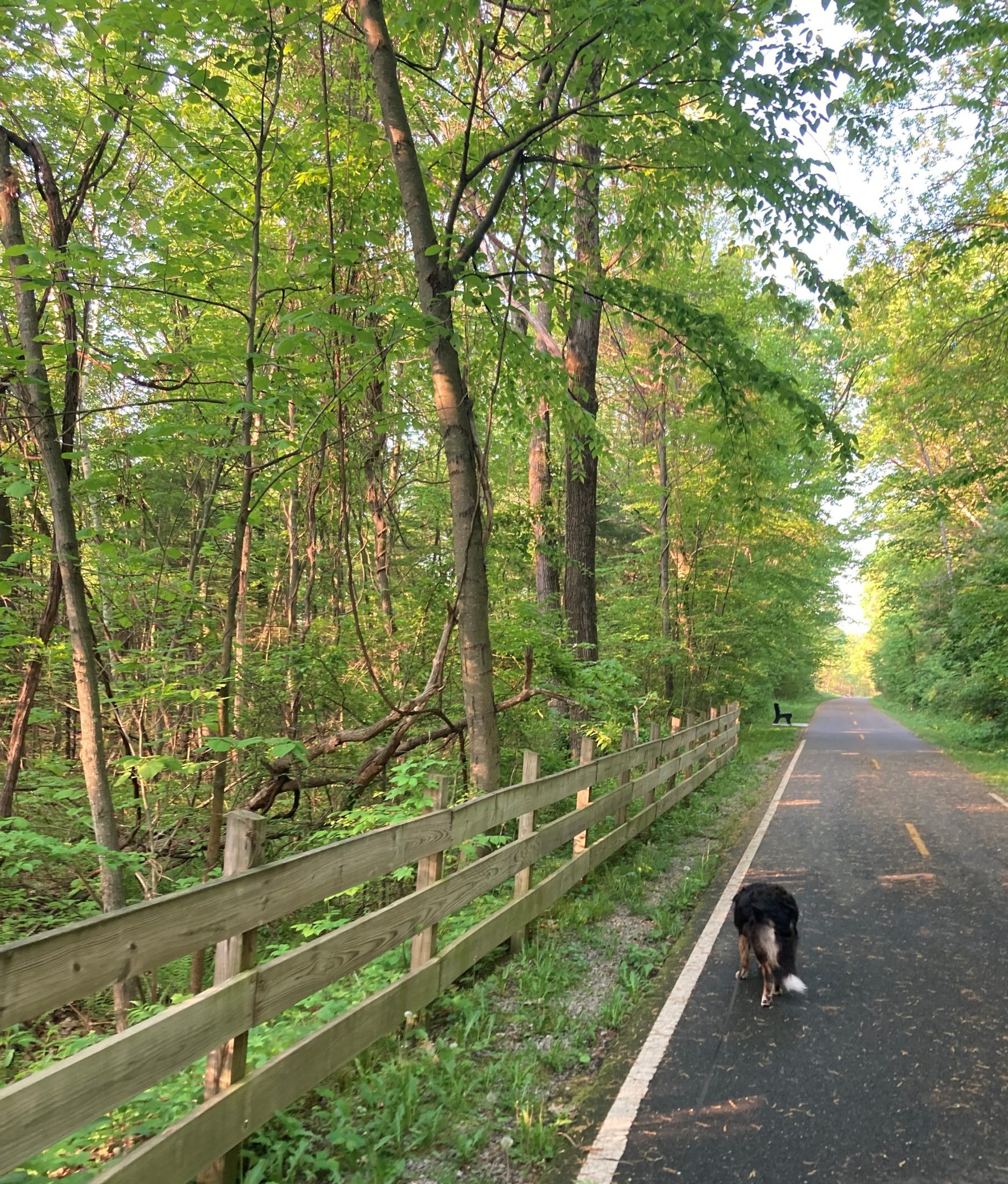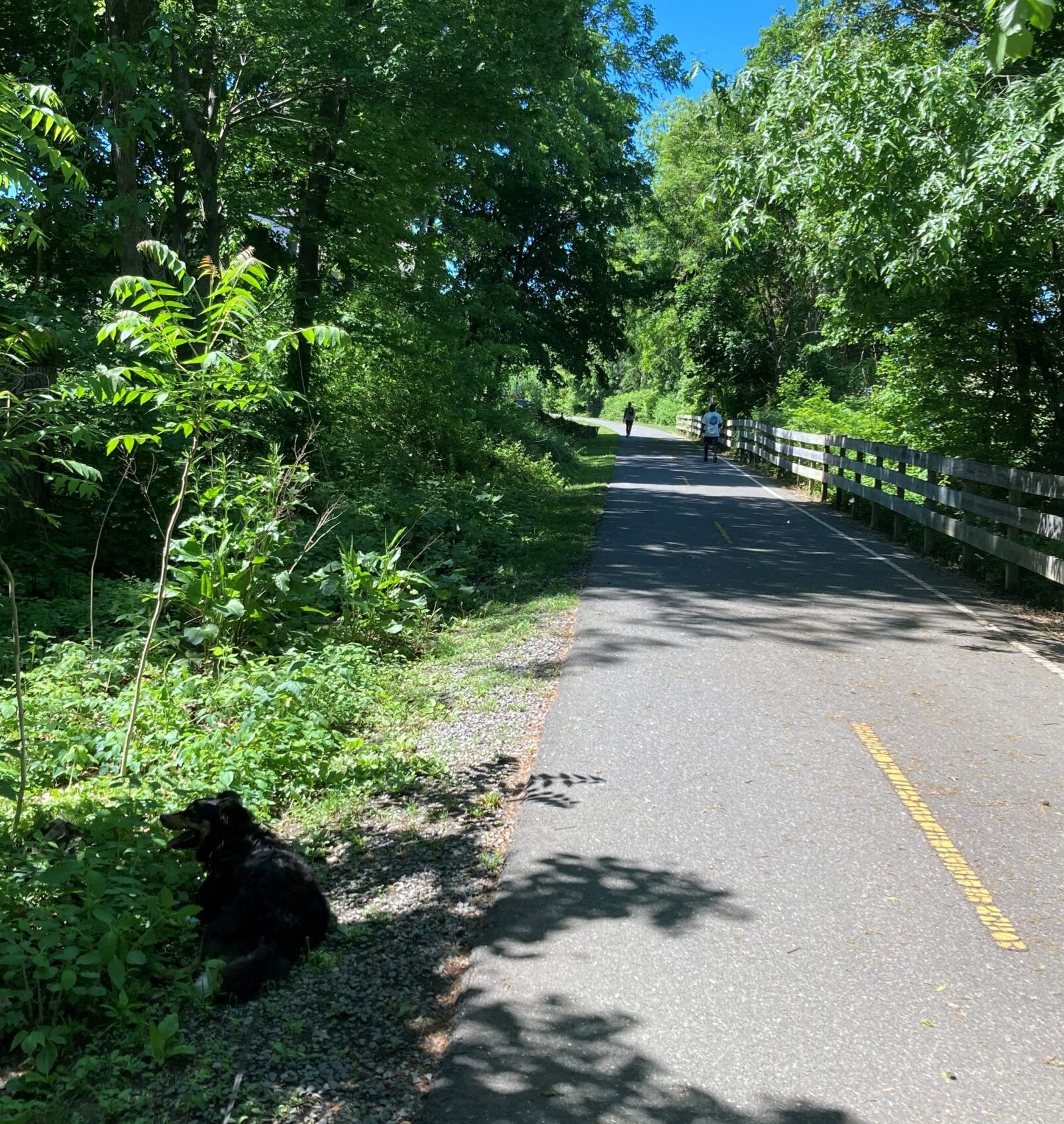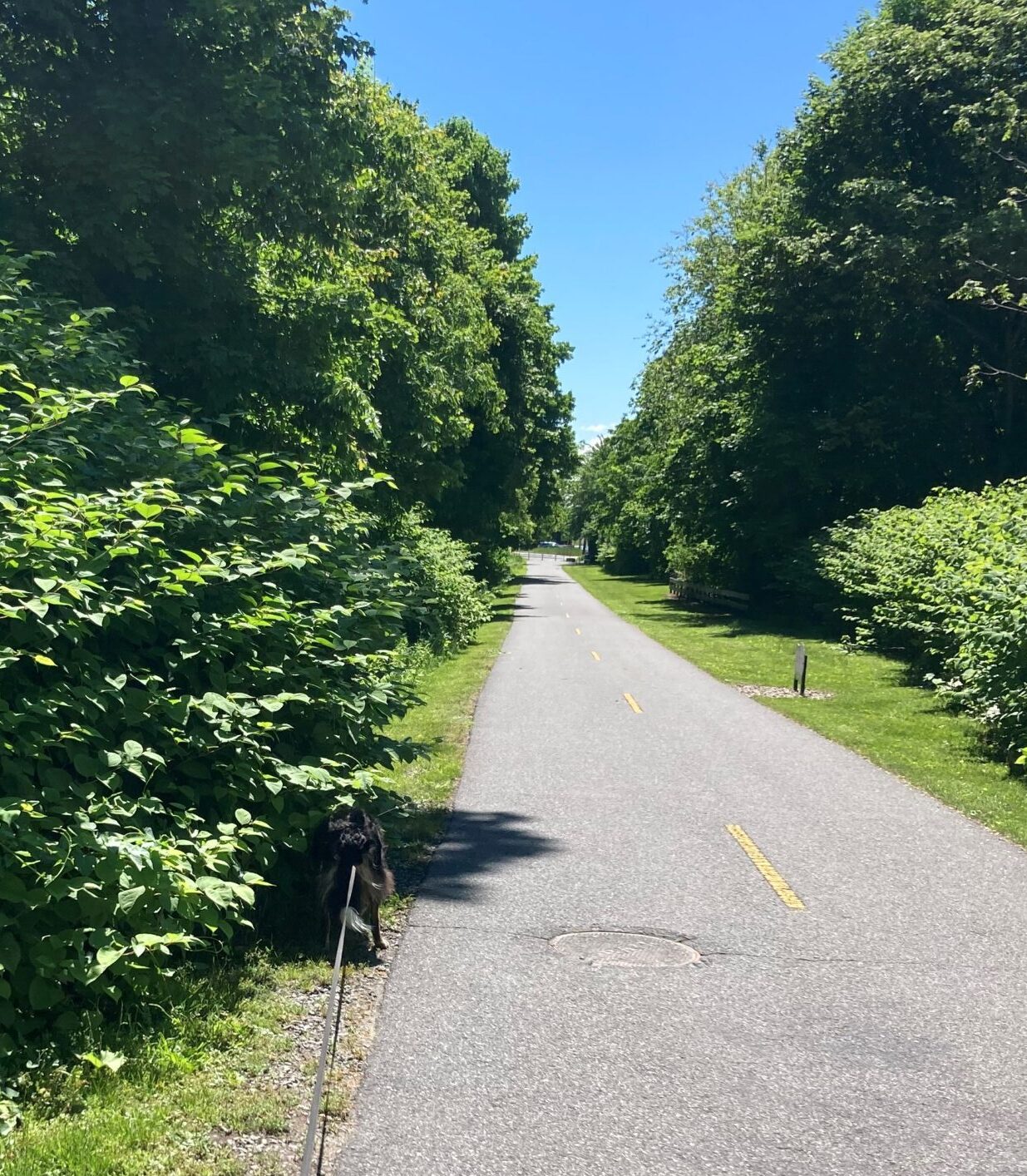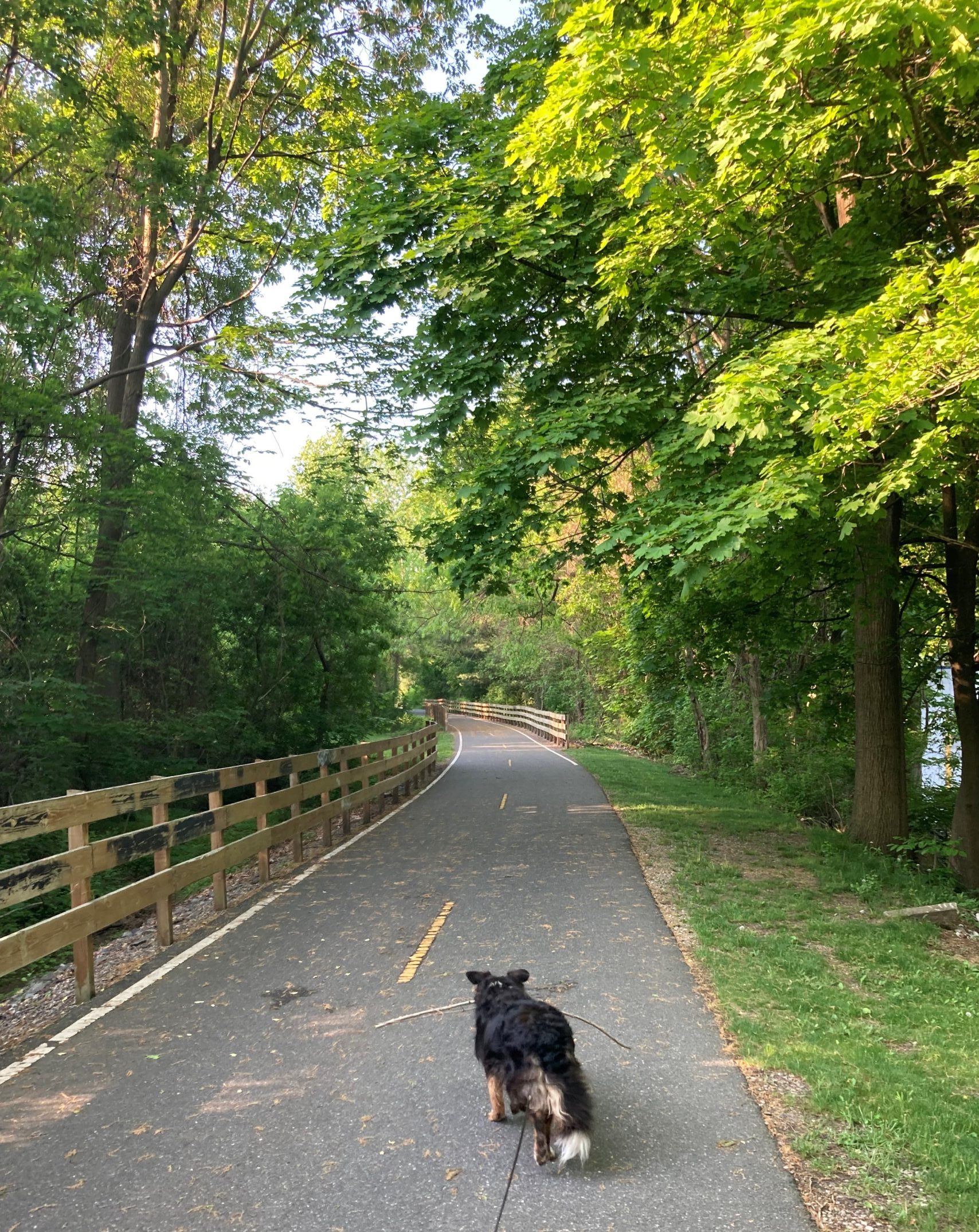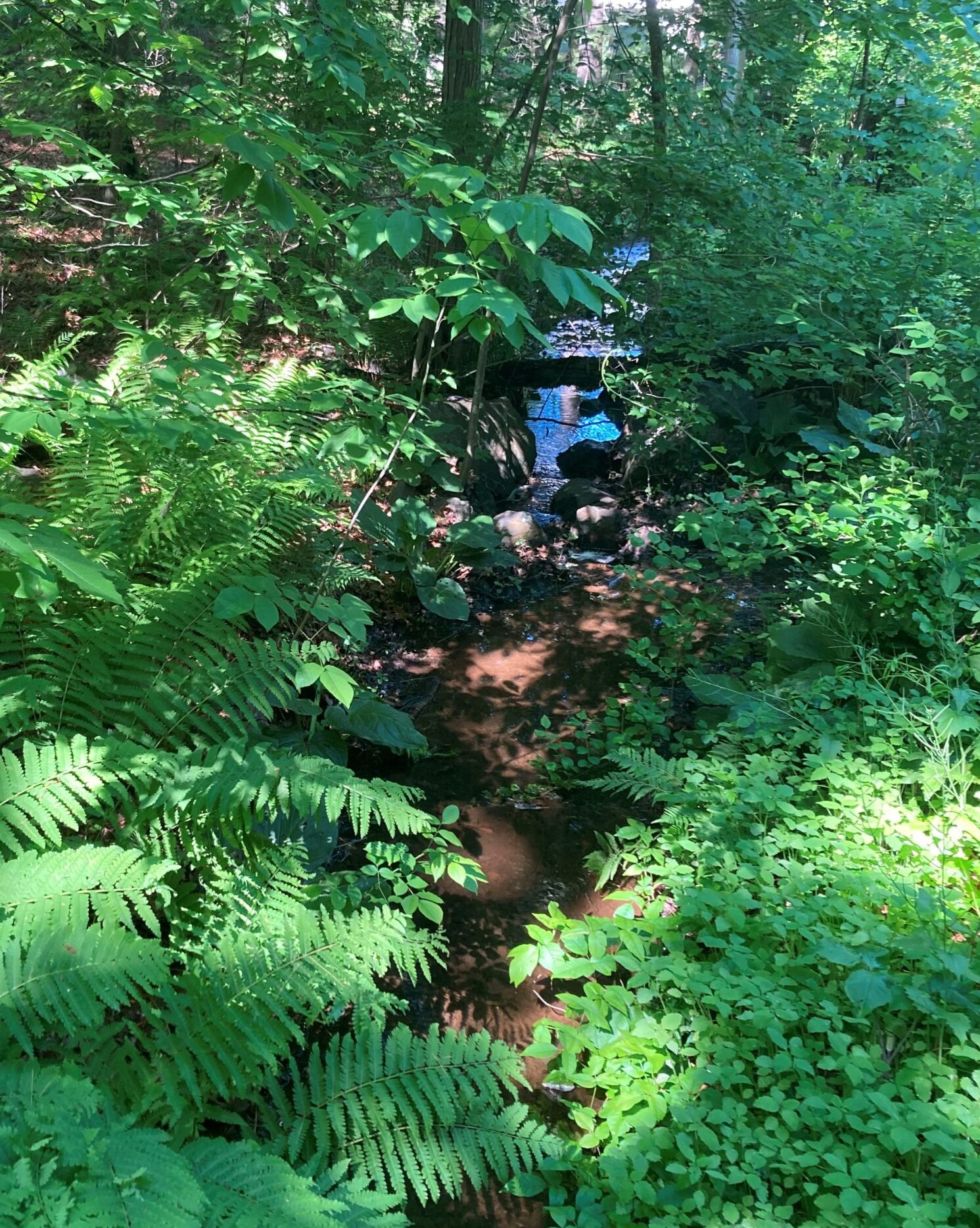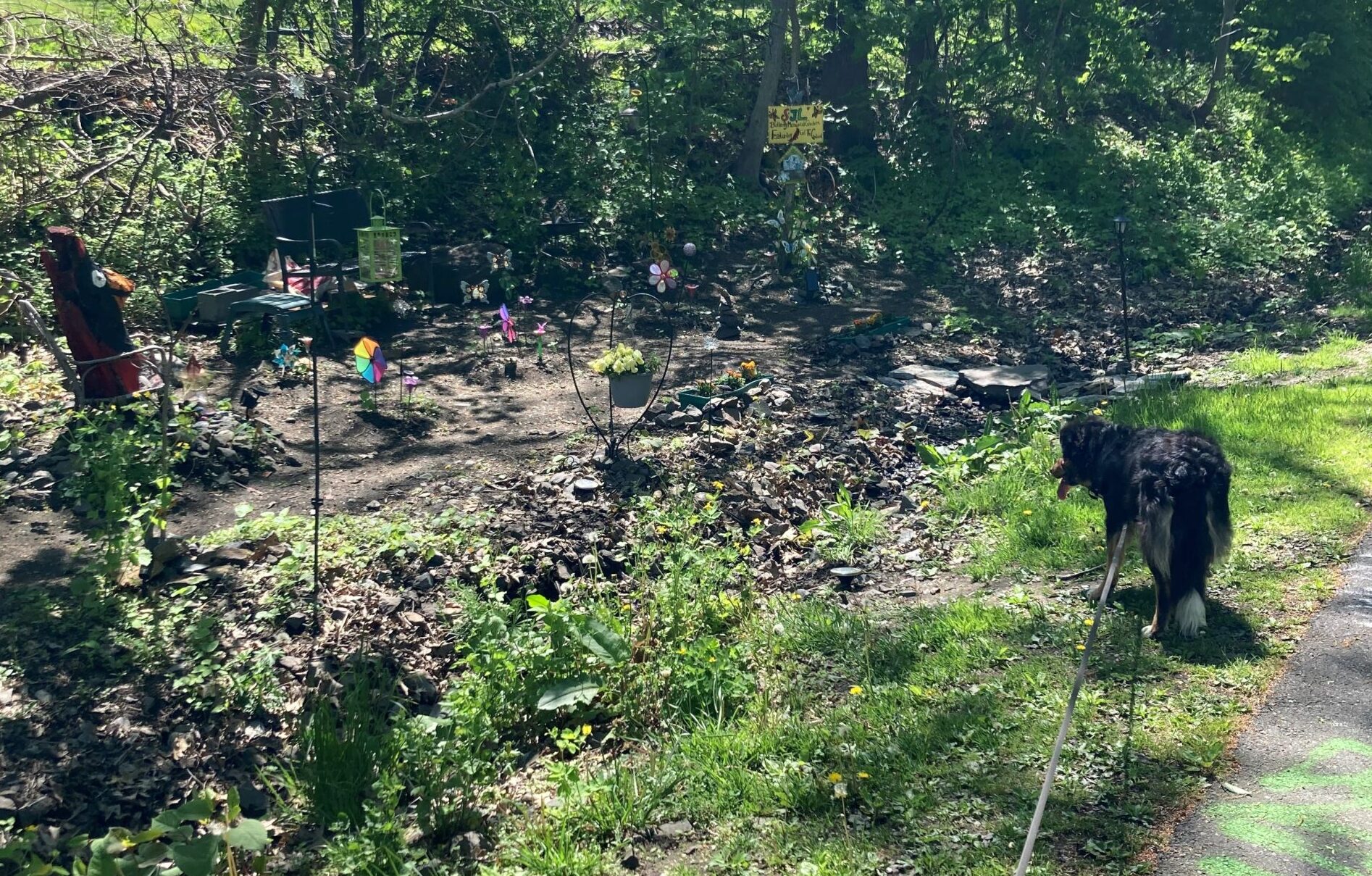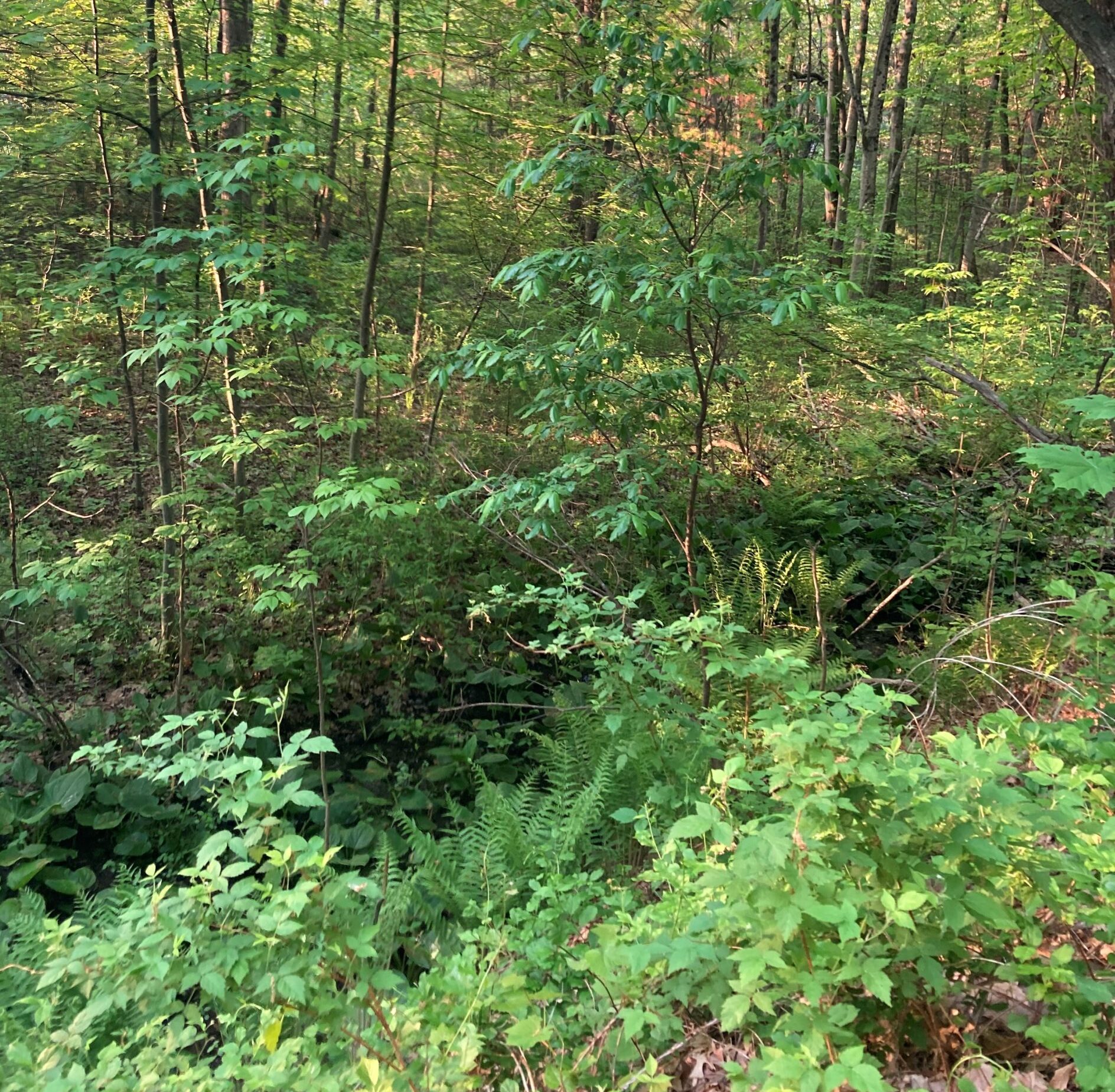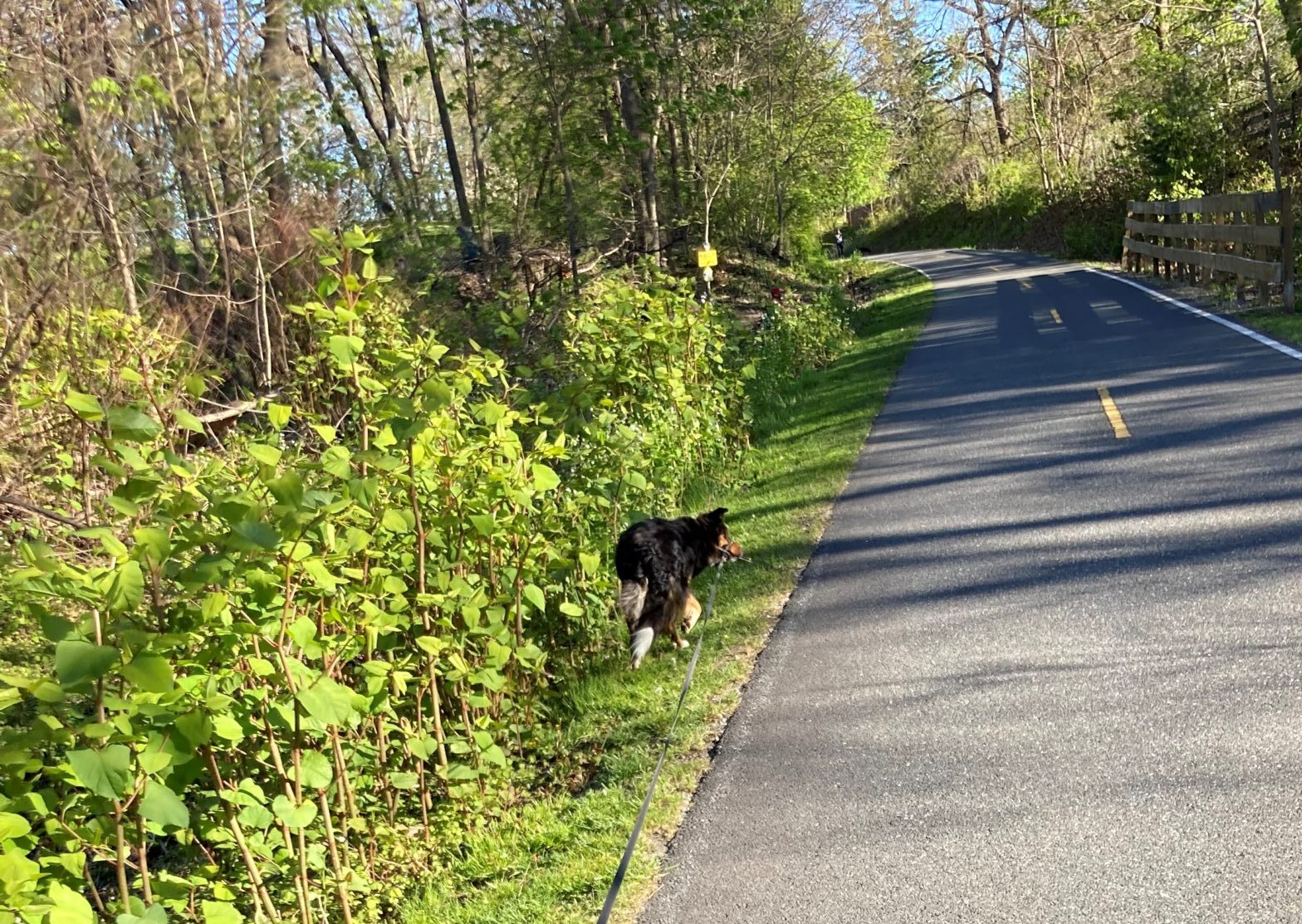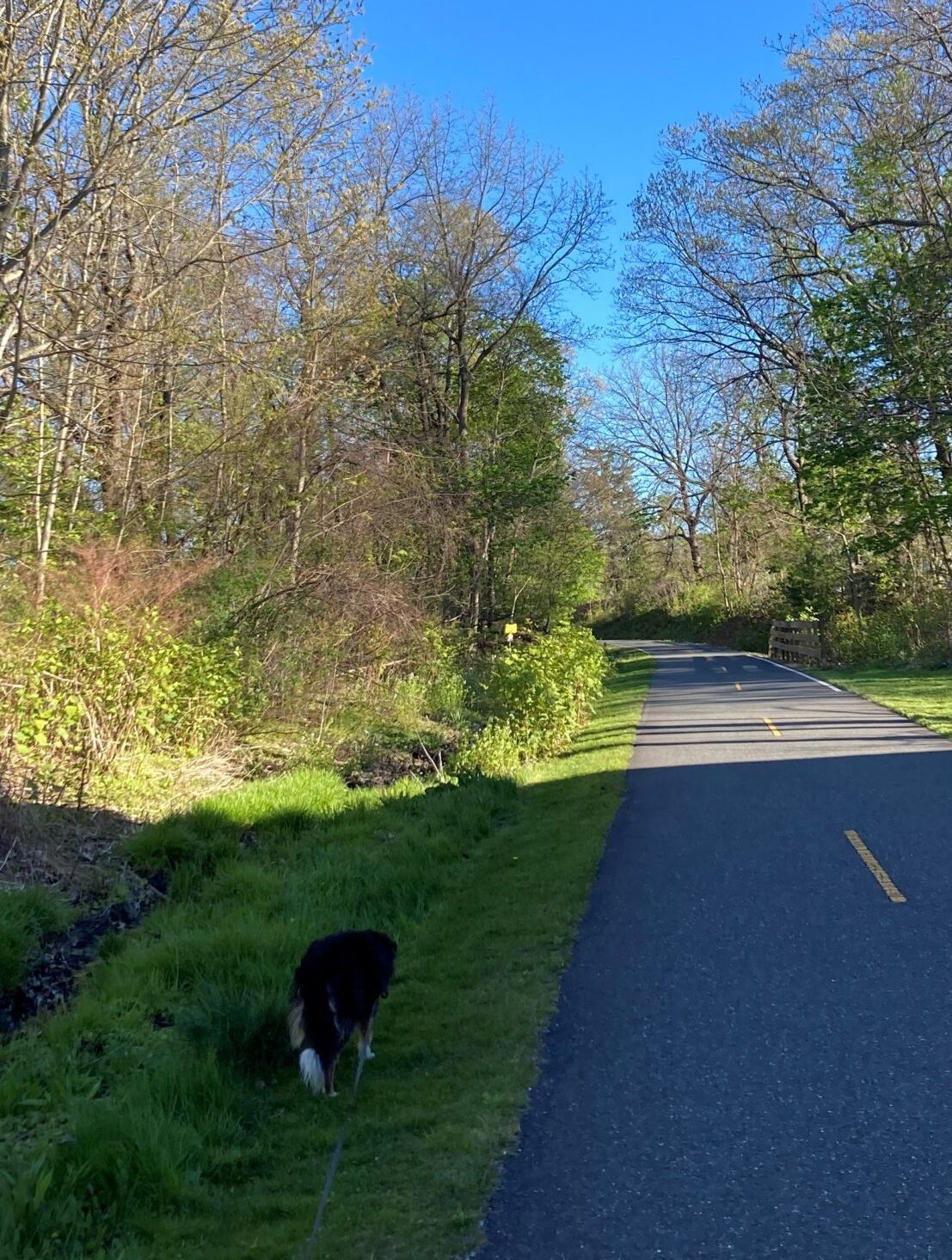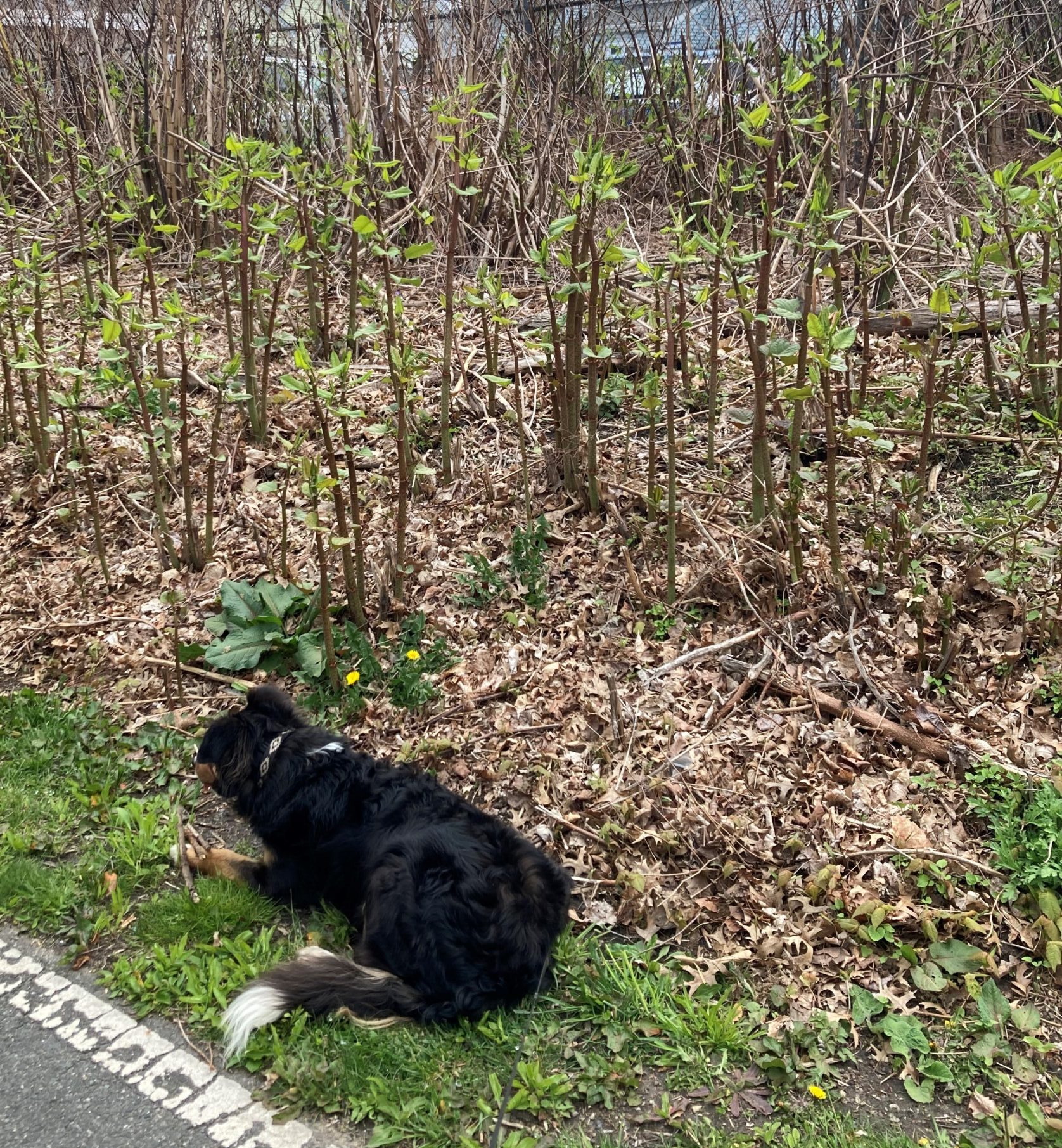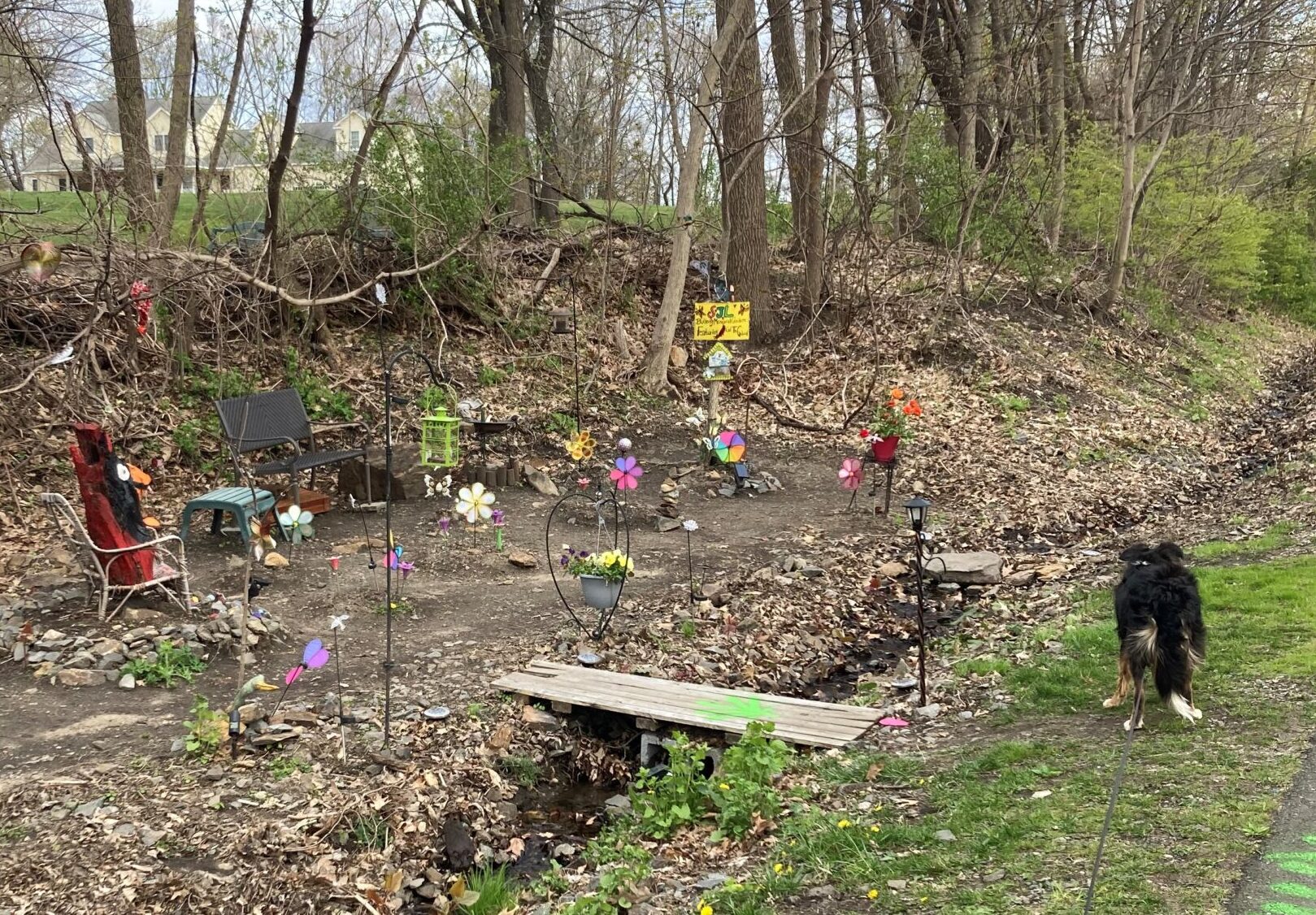Be aware of wonder. Live a balanced life – learn some and think some and draw and paint and sing and dance and work every day some.
-Robert Fulgham
Ah, late spring and early summer — there’s almost always a time of day when the temperatures are cool and the weather is dry. I always look at the weather forecast the night before and take my best guess as to when to go for our walks, then check it again in the morning when we get up. Not that it would stop Waldo and me from walking otherwise, but there’s no reason not to use the best of the day to advantage. This morning, it’s around 7 AM when we start, the skies are clear and a soft fresh breeze keeps us cool as we make our way down the tarmac. Waldo’s out front, pulling a bit on the leash, as if to say, “Come on! Let’s go! Let’s go!” and I’m in the rear, pulling the other way, saying, “I’m comin’! I’m comin’!”
It occurs to me that this tug of war is a good metaphor for much that happens in life. Newton’s third law, every action has an equal and opposite reaction, applies to a lot, not just an energetic dog walking his “master” down the trail. There is a push and pull to everything. If that were not so, then things would change precipitously, rapidly going from one state to another without the time to assimilate the differences.
For example, if a spring is stretched, there is a counterforce generated to return the spring to its original length. Once the stretching force is released, the counterforce brings the spring back to the way it was. There may be overshoot and the spring might become temporarily compressed. In such a case, there is a force in the opposite direction generated to again return the spring to its relaxed length. There would then be a back and forth until the energy generated by the first stretching of the spring is released through friction and then the spring will relax into its original condition – or nearly so.
There are many other examples like this in nature, some without oscillation. If a pan is heated on the stove, then taken away from the burner, the heat drains away by radiation, conduction and convection until the pan is again at ambient room temperature. If you get angry and the perceived cause of the anger is removed, the anger will dissipate and be replaced by something more calm until some other emotion comes to agitate you away from equanimity. If you stub your toe, the pain can be excruciating, but it will eventually fade until the next trauma. All things in life have a neutral point, a center, and forces that serve to bring things back to that point. If this were not true, there could be no stability to life.
Just the same, these stresses, forces, heat, emotional upset and so on, change who we are to some extent and we never get back just quite to being the way we were. Life’s experiences change us, even if in small steps and slowly. This is that slow slog we all go through from birth to death. If we were to track that neutral point as it changes on our journey through life, it would show a slow evolution from what we were to what we have become. Each tug, each emotional strain, each pain or elation that we experience, bends that neutral point just a bit and drives it into a slightly new position. This center of who we are, this essence of our existence, do we have any true idea of what it is?
I don’t think we can ever intellectually know that, but maybe, over time, we can get an intuitive sense of what we are and how we’ve changed. Whatever we are, the best way to know about it is to let go of all the forces pulling us this way and that. To forget about thinking and feeling and all the rest, at least once in a while. Instead, just listen to the poetry of life, dance with the squirrels and sing with the birds. That’s what comprises your life right now.
Waldo sees a tempting stick up ahead and gives the leash a jerk that shakes me from my reverie. I have wandered off my center, the here and now, but now I once again feel the wind on my skin, hear the birds sing and the insects buzz, see the leaves doing princess waves in the trees and smell the perfume of the nearby flowers.
I can count on Waldo to snap me back to what’s important in life.


